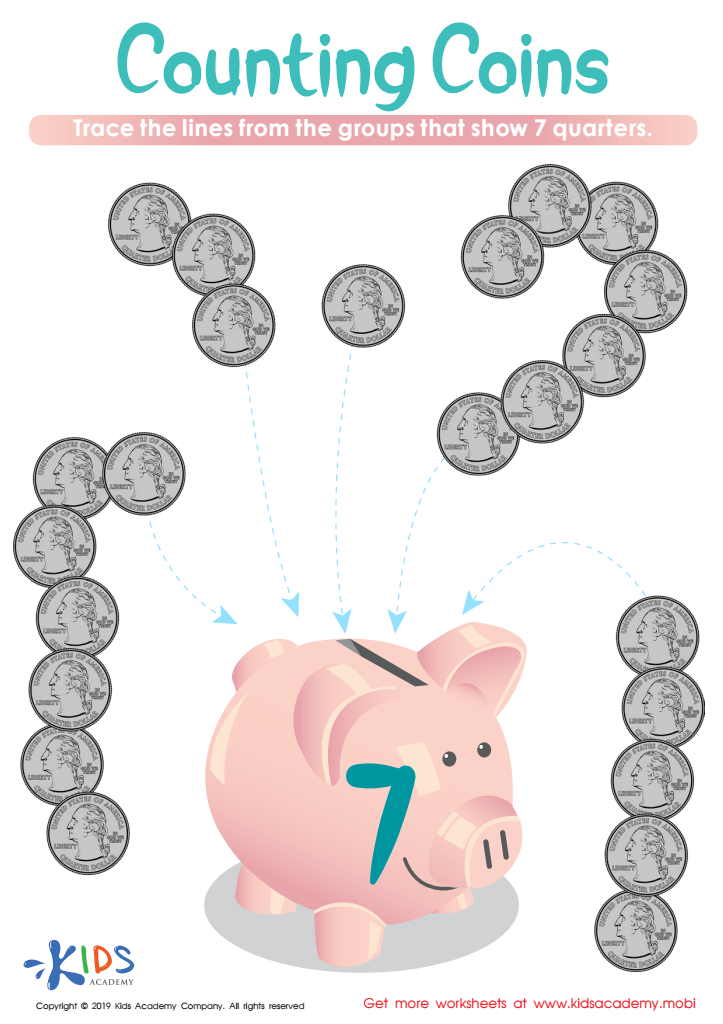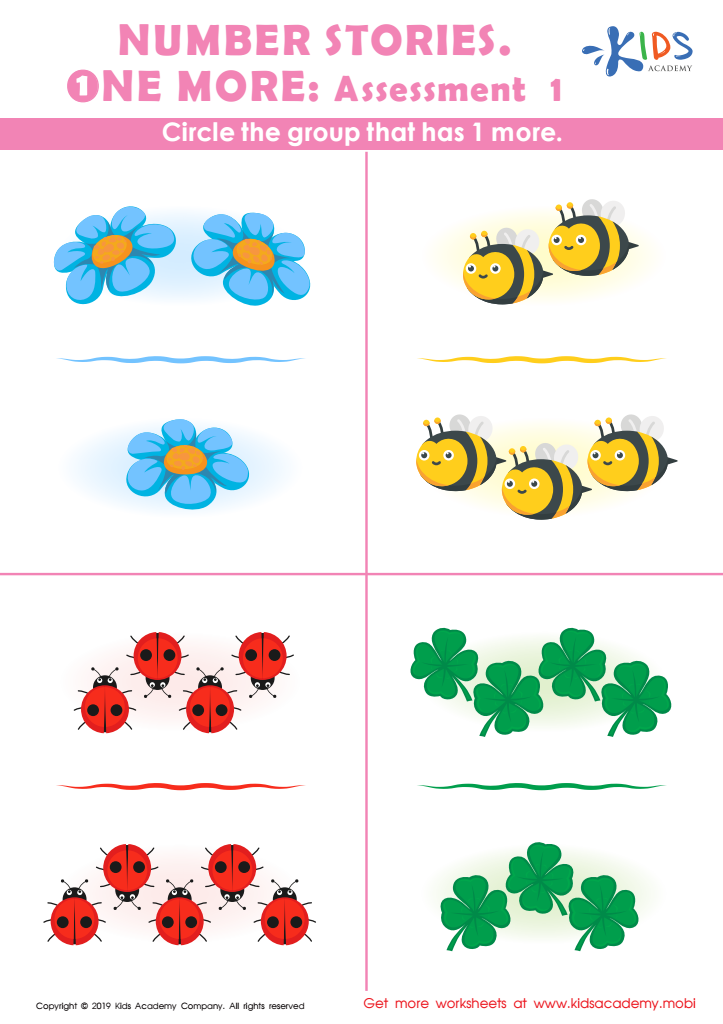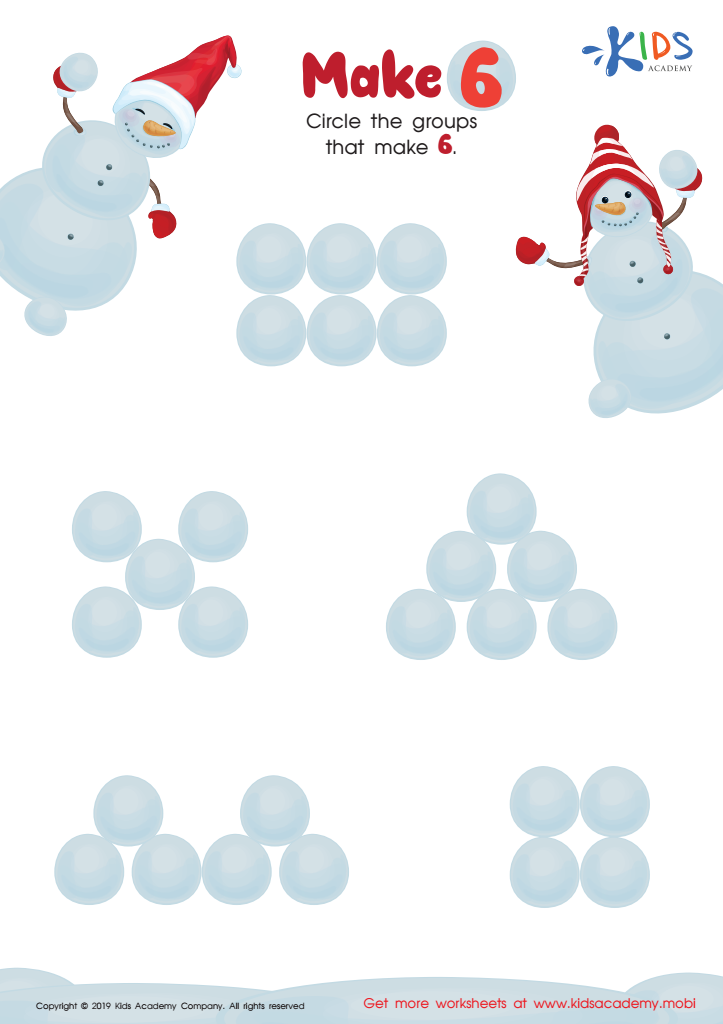Addition skills Numbers 0–10 Worksheets for Ages 3-4
3 filtered results
-
From - To
Enhance your child's early math skills with our "Addition Skills Numbers 0–10" worksheets, tailored for ages 3-4. These engaging and fun resources are perfect for introducing young learners to the basics of addition. Each worksheet is designed with colorful illustrations and simple exercises that make learning numbers and adding effortlessly enjoyable. By progressing through these worksheets, your child will gain confidence and a strong foundation in math, preparing them for future academic success. Ideal for both classroom and home use, these worksheets make learning addition exciting and accessible for preschoolers. Empower your child today with these interactive educational tools!


Counting Coins Worksheet


Number Stories One More – Assessment 1 Worksheet


Make 6 Worksheet
Developing addition skills with numbers 0–10 in children ages 3-4 is pivotal for their cognitive and academic growth. At this tender age, young minds are highly receptive to new concepts and the foundations laid now will shape their future learning experiences.
Teaching basic addition nurtures critical thinking and problem-solving abilities. It promotes numerical literacy, helping children understand the concept of "more than" and "less than," which are fundamental for everyday decision-making. Through addition, children begin to grasp the idea of quantities and relationships between numbers, fostering their overall mathematical thinking.
Moreover, early addition exercises contribute to fine motor skills development, especially when combined with sorting objects or interactive activities. These exercises help children use their hands and fingers in coordination with their thoughts, enhancing their motor skills and sensory development.
Addition activities can also be quite engaging, often visual and tactile, thereby making learning enjoyable. This positive early experience with math bolsters their confidence, erasing possible future math anxiety. The role of parents and teachers in imparting these skills is crucial as they provide the essential practice, encouragement, and support that young learners need to thrive. Hence, their involvement ensures a robust foundation for future complex mathematical concepts.
 Assign to My Students
Assign to My Students















